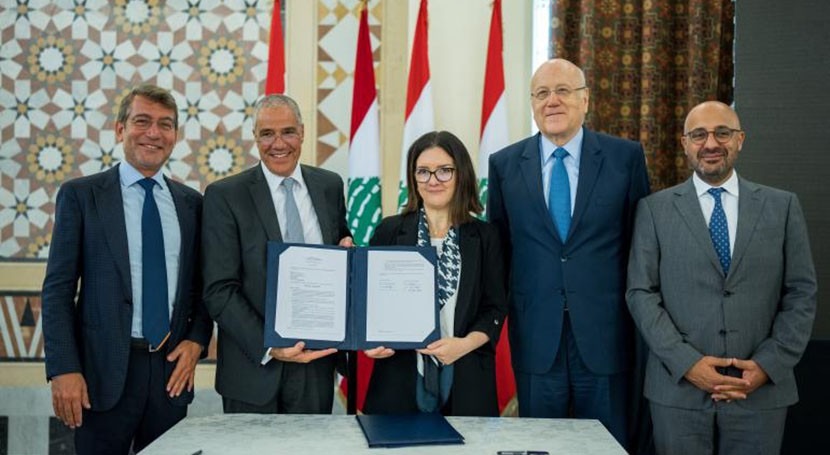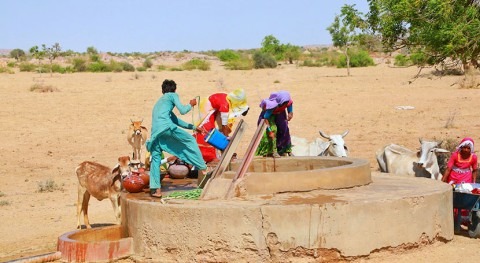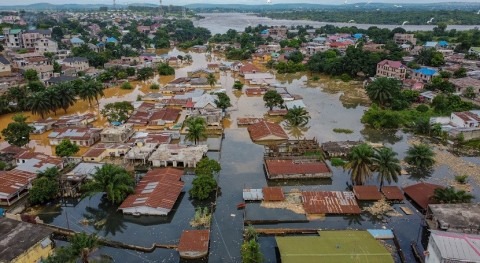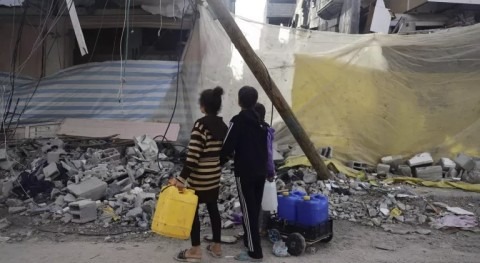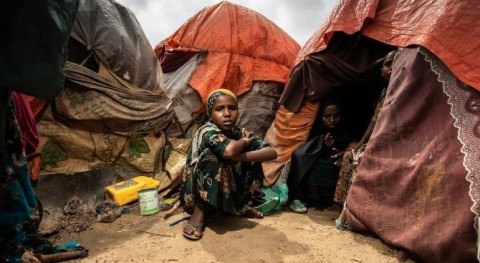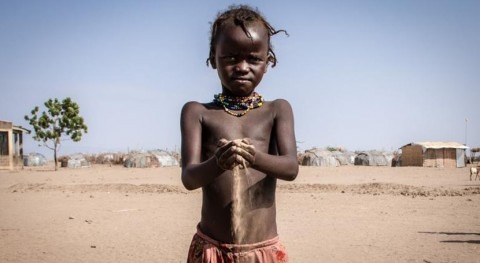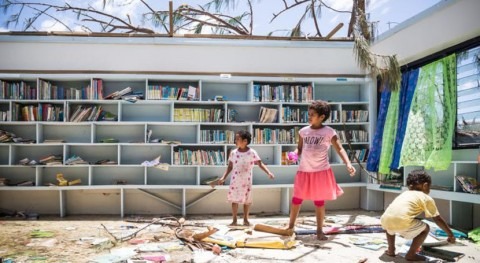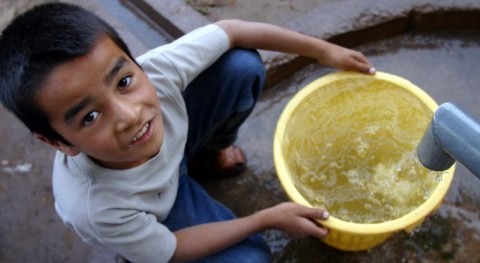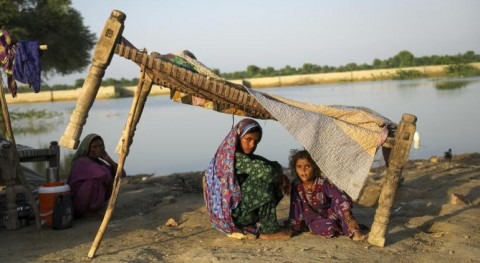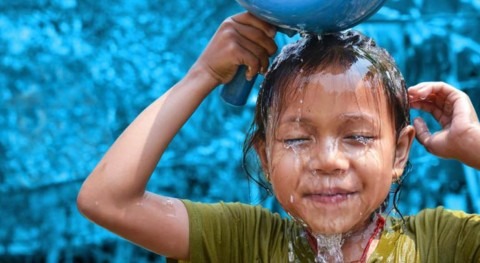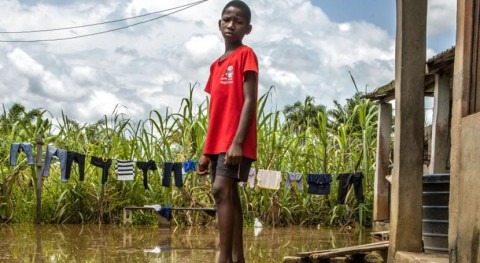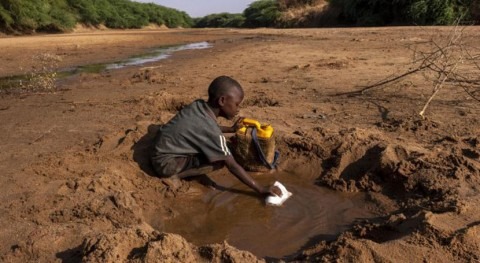On the occasion of World Environment Day, the Ministry of Energy and Water and Ministry of Environment in partnership with the European Union and UNICEF, announced the launch of a new project to sustain the continuity of wastewater treatment services in Lebanon amid the multiple crisis context .
The project has been developed as part of the Water Sector Recovery Plan and complements the existing support to water supply services under the Water Establishments, largely funded by the European Union and implemented by UNICEF. It will bring back into operation 11 key wastewater treatment plants (WWTP) across the country while promoting public awareness on wastewater impact on the environment and health.
Improving the functioning of WWTPs is also in synergy with the aims of reducing the vulnerability of children to water-borne diseases and therefore the impact on their health and nutritional status.
"The World Environment Day, that we celebrate, sheds light on a painful reality that our country suffers from due to years of accumulated environmental crises and the absence of a radical action,” Prime Minister Najib Miqati said. “During the recent cholera outbreak, we saw how UNICEF intervened to reach everyone with clean water, especially in the remote villages. Today, through the signing of this agreement with UNICEF in partnership with the European Union - which has never failed to assist Lebanon in fundamental and essential matters - we hope it will be an opportunity for the Lebanese Government to take responsibility in managing and improving these facilities instead of relying on others to do so.”
Lebanese Minister of Energy and Water, Dr. Walid Fayyad said: “After more than one and a half years of preparations and coordination with the European Union, UNICEF, the Council for Development and Reconstruction and the Water Establishments, we are happy that our hard work with all stakeholders is bearing fruit today with the kick off of a very important phase of the wastewater sector. the EU’s and UNICEF's support will allow the Water Establishments to smoothly transition into becoming the caretakers of the sector as mandated by the Water law. The Ministry of Energy and Water highly appreciates all efforts put towards that end, and particularly the EU’s extended support to the Lebanese during the time of crises. With the support of the international community, we are working for the recovery of the water sector by 2026.”
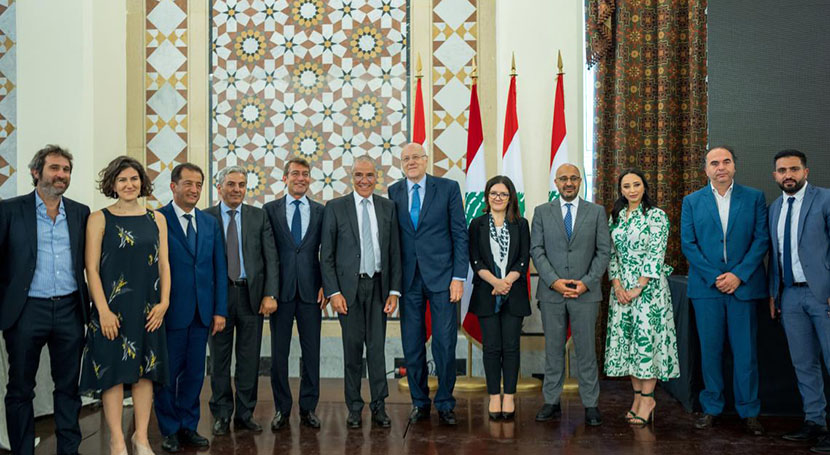
UNICEF2023/Fouad-Choufany/Lebanon
Minister of Environment, Dr. Nasser Yassin, said: "The project, which we are celebrating today on the occasion of World Environment Day, is essential to protecting the environment and ensuring public health. However, we should, in parallel to this support, put greater effort to ensure the continuity of this project through a cost recovery system while reducing the operational cost wastewater plants, such as relying on solar energy”.
Ambassador of European Union to Lebanon, Mr. Ralph Tarraf said: “The benefits of today’s project extend far beyond the realm of wastewater management. Functioning sanitation facilities and proper wastewater treatment are fundamental pillars for public health and socioeconomic development. By ensuring that wastewater is treated, we mitigate the risks of waterborne diseases and protect the wellbeing of citizens. Yet as much as it is an investment in the health and quality of life of people, it is also an investment in the country’s economic recovery.”
“Inadequate operation and maintenance of WWTPs and discharge of inadequately treated wastewater to the environment poses a major environmental and public health risk. The recent cholera outbreak reminds us of the dangers posed by pollution of the environment by untreated wastewater” said Ettie Higgins, UNICEF Deputy Representative in Lebanon. “With the European Union, we remain committed to strengthening the water establishments capacity to ensure equitable and sustainable provision of wastewater services to reduce the spread of infections and save lives”.
This project aims to bring back into operation 11 major wastewater treatment plants in various locations across Lebanon over a two years period. However much more investment and support is required for over 70 WWTPs that exist in the country in order to ensure that the environment is kept free from pollution at all times and in all places.


